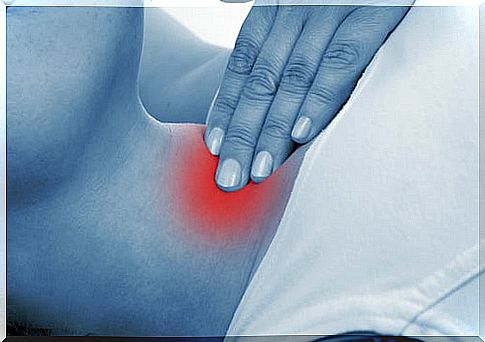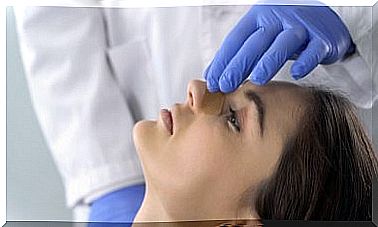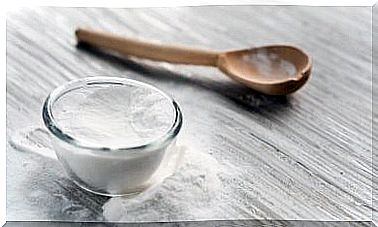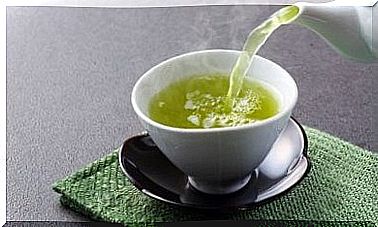Possible Causes And Remedies For Thyroiditis
Thyroiditis is inflammation of the thyroid. When we suffer from problems at the level of the thyroid gland, our physical and mental capacities are affected in an intense way.
The thyroid is one of the most important glands in our body. It secretes some of the hormones most necessary for our body to function effectively.
This gland located in our neck is responsible for regulating the speed with which we burn our calories, the heart rate and other rhythms of our body and fundamentally the way in which our cells use energy for their vital processes.
General information for the treatment of thyroiditis
Treatment for thyroiditis depends on the type you have. But in general, almost everyone tries to alleviate and eliminate inflammation so that the thyroid returns to its normal “work rate”.
Allopathic medicine can include anti-inflammatory pain medications (from aspirin or ibuprofen to prednisone), as well as thyroid hormone replacement for hypothyroidism.
Natural medicine uses Ashwagandha (Indian Ginseng) and Guggul for hypothyroidism, these help the thyroid to produce its hormones.
Regarding thyroiditis and dietary deficiencies, it is necessary to remember that the functioning of the thyroid depends on iodine. In Europe, iodized sea salt is commonly consumed, but it is a nutrient that is often lacking in the American diet.
To take an adequate dose of iodine, the ideal is to consume iodized salt or sea vegetables such as seaweed . It must be borne in mind that it is better to consume iodine through food than supplementing with tablets, as there are cases in which taking these is not appropriate.
Types of thyroiditis

Hashimoto’s thyroiditis
Its cause is unknown but it tends to have a hereditary family predisposition. It has an autoimmune nature, that is, the body produces defensive cells (antibodies) against the cells of the thyroid itself
For this reason, the gland becomes inflamed and its cells are gradually destroyed, causing hypothyroidism due to the reduction of thyroid hormones. This produces the symptoms of hypothyroidism fundamentally:
- Great sensitivity to cold
- Constipation
- Feeling of heaviness and fatigue
- The skin becomes dry and pale
- Brittle and weak nails and hair
- Weight gain with no apparent cause
- Very abundant menses.
Hashimoto’s Thyroiditis Treatment.
More than a direct treatment, it is a series of disciplines to follow that help the body to fight against this disease. Remember that before taking any action you should consult with your doctor.
- It is essential that we understand that the intestine contains 70% of our immune system. For this reason we have to consume probiotics to improve the intestinal flora. It also serves to correct possible fungal infections.
- It is proven that the eradication of gluten from our diet reduces the level of autoantibodies to normal levels in some people, in about 3 to 6 months: we will avoid wheat, rye and barley.
- If autoantibody levels are high, it is especially important to avoid iodine: no more than 100 cg / day.
- Vitamin D helps regulate the immune system: therefore it is recommended to take gentle sun baths.
- Reduce stress, since it releases cortisol, which prevents the activation of thyroid hormones by suppressing the enzyme 5 ′ deiodinase.
- Detoxify the body of possible poisons such as pesticides, solvents, chemicals, or heavy metals.
- Selenium helps reduce thyroid antibody levels and promotes the conversion of T4 (reserve hormone) to T3 (active hormone). It plays an important role in thyroid function, and protects you from nodules and cancer.
- Correct, if any, iron deficiencies, Vit. B12 or folic acid, as well as supplementing with doses of vitamins B2, 3 and 6 and Vitamin A.
- It is also important to do some kind of mild or moderate exercise, without exhausting ourselves, and to sleep well.
DeQuervain’s thyroiditis
Of probable viral origin, it presents with pain in the neck and, unlike the previous one, symptoms of hyperthyroidism initially develop that last from 1 to 3 months, followed by normal functioning.
Hyperthyroidism occurs when the thyroid produces more hormones than normal and the levels of thyroid hormones in the blood are elevated. Among the symptoms they produce are:
- Heat intolerance
- Tiredness, fatigue and lack of concentration.
- Increased appetite
- Weightloss
- Frequent bowel movements or diarrhea
- Restlessness, anxiety, nervousness
- Increased sweating
- Goiter (visible swollen thyroid)
To combat these manifestations, the infusion of green tea and lemon balm are useful . Drink twice a day. Its antioxidant capacity can calm an overactive thyroid.
Postpartum thyroiditis
After pregnancy, in some women, some antibodies that attack the thyroid may remain in their body, usually 4 to 6 months after having the baby. It can produce both types of alterations, hypo or hyperthyroidism.
Sometimes it is difficult to recognize because its symptoms are attributed to postpartum stress and postpartum mood disorders.
It is believed that women with postpartum thyroiditis may have an undiagnosed autoimmune thyroid disease that occurs after delivery, due to changes in immune function.
Medication or drug induced thyroiditis
It is a side effect of some medications such as lithium, amiodarone, interferons, or cytokines. They produce both hypo and hyperthyroidism and only remit when the drug is stopped.
Radiation thyroiditis
It occurs during radioactive iodine treatments for hyperthyroidism. In patients undergoing radiation therapy to treat certain types of cancer, symptoms of hypothyroidism also develop.
Acute or infectious thyroiditis
Caused by bacteria and other infectious microorganisms. Symptoms vary. It may or may not be painful, and the person often feels sick from the infection. When the infection is fought, the symptoms (usually hypothyroidism) disappear.
Acupuncture and thyroiditis
Our thyroid disorders can be alleviated and even improved thanks to acupuncture, a science deeply rooted in Asian culture and currently included as an optional hospital treatment in countries like Norway, for example.
Basically acupuncture works by reorganizing and balancing the metabolic system in general. That forces the thyroid gland to function properly.
When we use acupuncture to decongest certain areas of the body and cause a relaxing effect, this acts on our brain, stimulating its activity and hormonal production.









